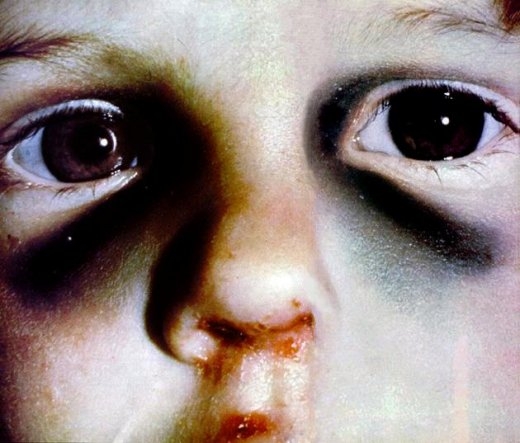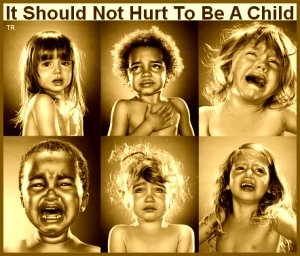
 BY JEFF DEENEY Some clarifying details are emerging in the Charlenni Ferreira case, changing the picture slightly from initial reports but still not providing enough information to determine if DHS bares some culpability in the 10 year old girl’s horrific death. It appears now that two school nurses at two different schools picked up on Charlenni’s abuse history and took interventive measures that were ineffectual, as both times Charlenni was seen by doctors who were ambivalent about whether the girl was currently being abused. The first nurse to encounter the girl in 2006 followed standard reporting procedures and contacted DHS. A DHS doctor was ambivalent about the abuse, but the nurse persisted in her advocacy and DHS opened a case on her for a twelve week period.
BY JEFF DEENEY Some clarifying details are emerging in the Charlenni Ferreira case, changing the picture slightly from initial reports but still not providing enough information to determine if DHS bares some culpability in the 10 year old girl’s horrific death. It appears now that two school nurses at two different schools picked up on Charlenni’s abuse history and took interventive measures that were ineffectual, as both times Charlenni was seen by doctors who were ambivalent about whether the girl was currently being abused. The first nurse to encounter the girl in 2006 followed standard reporting procedures and contacted DHS. A DHS doctor was ambivalent about the abuse, but the nurse persisted in her advocacy and DHS opened a case on her for a twelve week period.
The second nurse apparently directed the parents to take the child to a private doctor, though it seems the nurse didn’t make contact with DHS directly to report the abuse, which would be the legal obligation of a school nurse encountering an abused child. It’s unclear why the nurse made the decision to handle the situation the way she did, and it seems like an unusual course of action considering the state’s mandated reporting requirements are extremely clear. The law states that “regulated practitioners who, in the course of their employment, occupation or practice of their profession, come into contact with children shall report or cause a report to be made to the Department of Public Welfare when the Board regulated practitioners have reasonable cause to suspect on the basis of their professional or other training or experience, that a child coming before them in their professional or official capacity is a victim of child abuse,” with oral reports to be made to the state’s ChildLine toll free hotline.
If the private physician the school nurse referred Charlenni to determined there was abuse involved he would have wound up making a report to the ChildLine just like the nurse could have herself. It seems like an unnecessary step was inserted, here, and the necessary step of contacting DHS was not taken. Clarifying details may emerge later to explain this chain of events, but I spoke to a nurse who has worked with children about this and she stated that the child abuse reporting procedures for nurses are as clear as the law states them. If you encounter a child you suspect is being abused you called the ChildLine immediately. There is simply no other course of action that can replace this necessary step.
So, this was an unwise decision on the school nurse’s behalf. The parents should not have been trusted to take  Charlenni to a private doctor to determine if they were abusing her. Her parents could have coached the child on what to say before the visit, coercing her with threats of even more serious abuse should she admit the truth. Whatever happened in the doctor’s office that day, Charlenni’s visit to the private physician resulted in no action by any agent to prevent her death. What has yet to be investigated is what did the DHS contracted agency who provided services for the child in 2006 do for her? Initial reports stated that the child received a full three months of services from a contractor agency before they closed her case, having determined there was no abuse going on in the home. What did those visits consist of? Did the agency even make all the visits they billed the city for? Remember, this was theDanieal Kelly era when DHS had almost 150 outside contractor agencies providing the SCOH (Services to Children in their Own Homes) workers who largely make up DHS’s frontline of child abuse reporting. The Danieal Kelly case — where an outside contractor was engaging in outright criminal fraud, billing the city for services they never provided while a child was starving to death under their care — proved thatDHS had no idea what many of their contractors were doing. The agency had erected an absurdly convoluted contractor network that could not be quality controlled.
Charlenni to a private doctor to determine if they were abusing her. Her parents could have coached the child on what to say before the visit, coercing her with threats of even more serious abuse should she admit the truth. Whatever happened in the doctor’s office that day, Charlenni’s visit to the private physician resulted in no action by any agent to prevent her death. What has yet to be investigated is what did the DHS contracted agency who provided services for the child in 2006 do for her? Initial reports stated that the child received a full three months of services from a contractor agency before they closed her case, having determined there was no abuse going on in the home. What did those visits consist of? Did the agency even make all the visits they billed the city for? Remember, this was theDanieal Kelly era when DHS had almost 150 outside contractor agencies providing the SCOH (Services to Children in their Own Homes) workers who largely make up DHS’s frontline of child abuse reporting. The Danieal Kelly case — where an outside contractor was engaging in outright criminal fraud, billing the city for services they never provided while a child was starving to death under their care — proved thatDHS had no idea what many of their contractors were doing. The agency had erected an absurdly convoluted contractor network that could not be quality controlled.
Did Charlenni’s SCOH worker even show up for her scheduled home visits? Did the worker stay for five minutes, talking on her cell phone the whole time and not even interacting with the family, as I witnessed one SCOH worker doing back in 2007? Determining whether or not DHS bears a big piece of responsibility for the death of Charlenni Ferreira hinges on this.
The other possibility is that during DHS’s involvement with Charlenni the family was able to game the agency. In neighborhoods like Feltonville DHS is seen as an intrusive force that is capable of wielding tremendous power over a family, and the agency is resented for what is seen as arbitrary methods that result in some kids being taken away from their parents for no good reason while others die of abuse with no intervention at all. Many unfounded anonymous calls to the ChildLine are made as acts of retribution in family or neighborhood disputes. Word of mouth about what DHS home inspections consist of get around. So every family in Feltonville knows what to do if someone calls DHS on you. You go to the supermarket and stock up on food so the cupboards don’t look bare, you clean the place up so it doesn’t look like you’re living in squalor and you tell the drug dealers that hang out in front of your building to cool down the block for a while so the social worker can get access to your home without feeling threatened. If you do these things, you’ve got a good chance of keeping your kid. If Charlenni’s parents were doing these things while coaching the child on what to say when the SCOH worker was in the home and successfully concealing the wounds they were inflicting on her I suppose it’s unlikely but conceivable that a child welfare agency could interact with this family for three straight months and not catch on to what was really happening. If this was the case, then maybe DHS deserves to be exonerated.
But I don’t think DHS nor any of their contractor agencies deserve the benefit of the doubt. Investigators should make them prove that they did their job, because the fact is that in 2006 they definitely weren’t doing much to save Danieal Kelly, so why should we assume that they did their job to protect Charlenni Ferreira?
PREVIOUSLY: About Charlenni Ferreira
